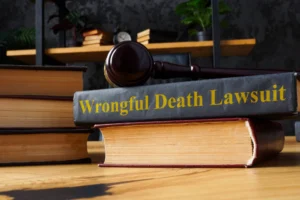Assault charges in Texas carry severe penalties, ranging from fines and probation to years in prison, depending on the circumstances of the case. Whether an assault is classified as a misdemeanor or felony, the consequences can significantly impact your future, including your employment opportunities and personal relationships for years to come. If you’ve been arrested for assault, understanding the potential penalty for assault charges in Texas is necessary if you want to protect your future.
If you or a loved one has been accused of assault, you need a skilled legal defense to navigate the complexities of Texas law. Guzman Law Firm is here to help. Call us today at (956) 516-7198 or contact us online to discuss your case and fight for your rights.
What is considered assault in Texas?
Under Texas Penal Code Section 22.01, assault occurs when a person:
- Intentionally, knowingly, or recklessly causes bodily injury to another person, including their spouse
- Intentionally or knowingly threatens another person with imminent bodily injury
- Intentionally or knowingly causes physical contact with another person when they know or should reasonably believe that the other person will regard the contact as offensive or provocative
Assault can be committed in a variety of ways, from physically striking someone to making credible threats of harm. The severity of the charge depends on factors such as the extent of injuries, the relationship between the parties, and whether weapons were involved.
What are the types of assault in Texas?
Misdemeanor assaults
Misdemeanor assault charges in Texas typically involve minor injuries or threats that do not result in serious harm. So, what is considered simple assault in Texas? These offenses fall into three categories:
| Class C MisdemeanorAssault | Definition: Threatening someone with bodily injury or making offensive contact without causing injury Example: A person shoves another in a heated argument but does not cause injury Penalty for assault: A fine of up to $500 (no jail time) |
| Class B MisdemeanorAssault | Definition: Assault against a sports participant (such as a referee or player) during a game Example: A fan rushing the field and attacking a referee Penalty for assault: Up to 180 days in jail and a fine of up to $2,000 |
| Class A MisdemeanorAssault | Definition: Assault causing bodily injury, including domestic violence cases Example: Hitting a spouse or family member, causing visible bruising Penalty for assault: Up to one year in jail and a fine of up to $4,000 |
Certain factors, such as previous convictions or the involvement of a public servant, can escalate these charges to felonies, resulting in harsher penalties.
Felony assaults
Felony assault charges are more severe and carry significant prison sentences. The degree of the felony depends on the circumstances of the crime and the severity of the injuries inflicted.
| Third-Degree Felony Assault | Definition: Assault causing bodily injury to a public servant, emergency worker, or family member in specific circumstances. Example: Hitting a police officer while resisting arrest. Penalty for assault: 2 to 10 years in prison and fines up to $10,000 |
| Second-Degree Felony Assault | Definition: Aggravated assault, which involves serious bodily injury or assault with a deadly weapon. Example: Using a knife during a fight, causing serious injury. Penalty for assault: 2 to 20 years in prison and fines up to $10,000. |
| First-Degree FelonyAssault | Definition: Aggravated assault against a public servant, sexual assault, or assault resulting in severe injury or death Example: Assaulting a child or elderly person, leading to permanent injury or death Penalty for assault: 5 years to life in prison and fines up to $10,000 |
As opposed to those who commit a first-time assault in Texas, repeat offenders may face enhanced penalties, including automatic upgrades to higher felony classifications, longer sentences, and fewer options for parole.
Learn more about the difference between assault and aggravated assault
Additional penalties for assault in Texas
Beyond fines and jail time, an assault conviction can have long-term consequences that affect various aspects of life. Understanding these potential long-term effects is crucial when deciding how to handle an assault charge.
Lost opportunities
For example, many employers conduct background checks, and a conviction for assault can make it difficult to secure a job, especially in fields requiring security clearance or professional licenses. Landlords, too, may deny rental applications based on an assault conviction, making it harder to find housing.
Lost rights
An assault conviction will also limit certain rights that many Texans hold dear; convicted felons lose their right to possess firearms, impacting personal and professional circumstances. Additionally, a person convicted of assault, particularly in domestic violence cases, may face restrictions on child custody or visitation rights.
Lost status
Being convicted of assault could also carry devastating consequences for undocumented immigrants. Non-citizens convicted of assault could face deportation or be denied future visas and green cards.
Seeking strong legal representation can help mitigate these consequences and provide a chance for a more favorable outcome.
Assault charge defenses
If you have been charged with assault in Texas, several legal defenses may apply to your case. Common defenses include:
- Self-defense: If you were attacked and used force to protect yourself, Texas self-defense laws may keep you from being criminally liable.
- Defense of others: If you acted to protect another person from harm, you might have a valid legal defense.
- Lack of intent: Assault requires intentional or knowing actions. If the incident was accidental, it may not qualify as assault.
- False accusations: Sometimes, people falsely accuse others of assault due to personal conflicts or legal disputes.
- Insufficient evidence: The prosecution must prove beyond a reasonable doubt that an assault occurred as defined by law.
Having a knowledgeable attorney who knows how to beat a simple assault charge and felony charges in Texas can help determine the best defense strategy for your case and potentially lead to reduced charges or a case dismissal.
Facing assault charges in Texas? Call Guzman Law Firm.
Being charged with assault in Texas is a serious matter that can have long-lasting consequences. A penalty for an assault conviction could mean fines, jail time, and a permanent criminal record that affects your personal and professional life. If you or a loved one is facing assault charges, you need an experienced attorney to protect your rights and build a strong defense.
Attorney Javier Guzman is dedicated to providing aggressive legal representation for those accused of assault in Texas. Our team will thoroughly investigate your case, explore all available defenses, and fight for the best possible outcome.
Don’t wait! Call Guzman Law Firm at (956) 516-7198 for a confidential consultation, or contact us online and let us help you navigate the legal system with confidence.
More Helpful Articles by Guzman Law Firm:
- What Is a No-Fault Divorce in Texas?
- What to Do After a Car Accident in Texas
- When Can the Police Search Your Car?
- Second DWI in Texas: Penalties and Defenses
- How to Choose the Best DWI Lawyer in San Antonio





